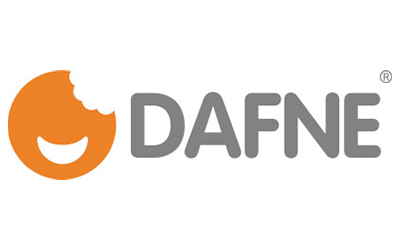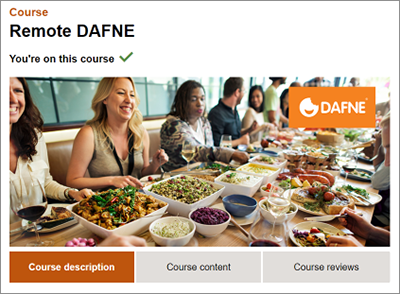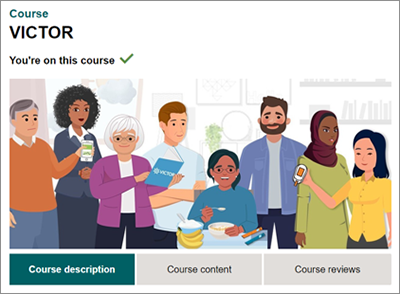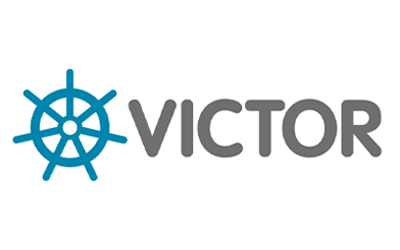Improving lives of people living with diabetes

Introducing DAFNE
DAFNE stands for Dose Adjustment For Normal Eating and is a structured education programme that helps people with Type 1 diabetes lead as normal a life as possible, whilst maintaining blood glucose levels within healthy targets. This can reduce the risk of diabetes complications. DAFNE emerged from pioneering research as an approach that could be used across the NHS through the development of DAFNE centres. Within these centres, healthcare professionals access DAFNE training and go onto deliver education on the DAFNE method of diabetes self-management to people with diabetes.
DAFNE is a structured education programme, we provide training to clinical teams (including nurses, dieticians and doctors) to form DAFNE centres. These centres then educate and support people with diabetes under their care, giving them the required tools to manage their diabetes.
Becky Hedgcock
National DAFNE Operations Manager
“Prior to DAFNE, people with type 1 diabetes were often advised to restrict their diet and change their lifestyle. Many DAFNE graduates tell us before DAFNE they were advised to stop doing things we all take for granted, such as having a lie in, having a piece of cake or a drink of alcohol or even having children. DAFNE teaches people with diabetes the skills they need to adjust their insulin depending on what they are planning to do.
“In summary, DAFNE allows you to fit diabetes into your lifestyle, rather than changing your lifestyle to fit in with your diabetes.”
Expanding the impact and reach
The link with The Open University (OU) started in 2018, when Balvinder Johal, Director of Sector Development at the OU was working in partnership with Northumbria Healthcare NHS Foundation Trust. Johal explained: “It was a project run by Gillian Thompson based around face-to-face learning and there was a need to scale it and reach wider audience. The question [from the Trust] was ‘could you take our face-to-face content and put it online?’ That is when we invited the Trust to our campus in Milton Keynes and we mapped it out with our colleagues from Learner and Discovery Services (LDS). We started picking apart what the course was and how it could work online.”
We brought our learning designer into the conversation. The course was really well designed and it was fantastic working with the DAFNE team to turn a face-to-face course into a deep piece of online learning for both clinicians and patients using technologies such as XML and Articulate 360.
Mike Stock
LDS Senior Project Manager at the OU
Although some training is available for staff at non-DAFNE services, most of the educator training is for staff at DAFNE centres (new and established). The range of courses available now allows centres and their participants to choose a course format which is right for them; remote, blended or face-to-face. The remote and blended options include part of the course being delivered online learning designed by the OU. The online learning is followed up with weekly group sessions with DAFNE trained educators on Microsoft Teams (if remote format) or face-to-face (if the blended format).
DAFNE conducts high quality research and annual audits to ensure their education is safe and effective and is continually improved. DAFNE audits outcomes and links to many peer-reviewed scientific papers are available to view via their website.
Utilising OpenLearn Create
All remote training is available online via the OU’s OpenLearn Create platform which is used for professional training in a range of sectors from healthcare to policing. Access to the learning is managed by secure logins so that only a defined group of people can access the course material.
Mike added: “Becky and the team at DAFNE have access to all the learner data, results and statistics. We travelled to Northumbria and we did a session with DAFNE on how to find everything and how to run reports. Becky's been fantastic at driving us to get different reports out of the system, which we’ve developed, alongside a central resources area for documentation.”


Navigating Covid-19
People living with diabetes were more vulnerable to Covid-19. This made face-to-face courses impossible during the pandemic and meant the OU’s remote programme came to the fore.
Becky explained: “The remote version of DAFNE was developed at pace during the pandemic to ensure people with diabetes were still able to access education during the UK’s lockdowns. However, remote DAFNE was a big hit and many centres have continued to deliver remote courses, alongside face to face courses. Currently 55% of DAFNE courses run are in a remote format. The pandemic also changed the way DAFNE delivers educator and doctor training, now all healthcare professional training is delivered online and remotely, meaning DAFNE now has the capacity to train more healthcare professionals and can offer this free-of-charge to DAFNE centres.
Growing success and expansion
The success of DAFNE in improving the lives of people living with diabetes has been significant. There are now 114 DAFNE centre across the UK and the Republic of Ireland, delivering to 234 localities. More than 1,500 nurses and dieticians have been trained as educators and more than 1,300 doctors have been DAFNE-trained. An impressive 65,000 participants have graduated from a DAFNE course. More than 10,000 DAFNE courses have been delivered via the face-to-face or online pathways.
Becky’s team have collected person reports outcome data over recent years. This data shows people with diabetes completing a DAFNE course report a significant improvement in their quality of life. DAFNE educators often tell us delivering DAFNE courses is the most rewarding part of their role, patients tell them their life has been transformed after completing the course.

Becky explained that although DAFNE has always been a programme for type 1 diabetes, the focus is now expanding to type 2 diabetes. A new programme called VICTOR has been piloted in 2024/25 and is now available to all DAFNE centres. VICTOR stands for Varying Insulin doses for Changes To Routine and is for people with type 2 diabetes who use multiple daily injections of insulin. The pilot educator and participant feedback was incredibly positive and DAFNE looks forward to analysing the clinical outcomes in the next 12-months. VICTOR is another course that includes online learning designed by the OU.
DAFNE’s significant success in changing lives has seen interest and impact grow internationally.
We don’t need to fly abroad to train overseas teams as our resources and training is available online and remotely.There are centres in Australia, New Zealand, Kuwait and licenses in Saudi Arabia and Qatar, so DAFNE interest is really building worldwide.
Becky Hedgcock
National DAFNE Operations Manager
Please contact us to speak to one of our business team advisors.
Not on our mailing list?
Sign up to receive regular emails that are full of advice and resources to support staff development in your organisation.